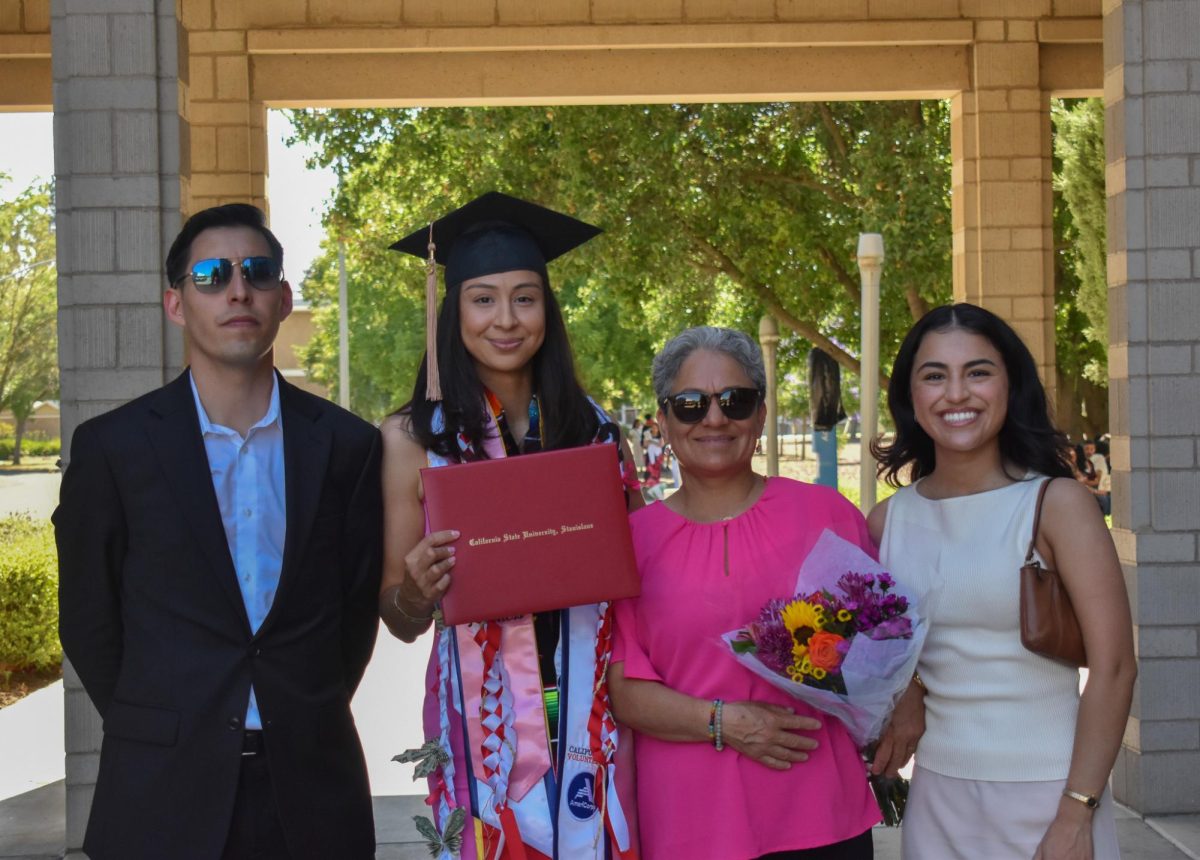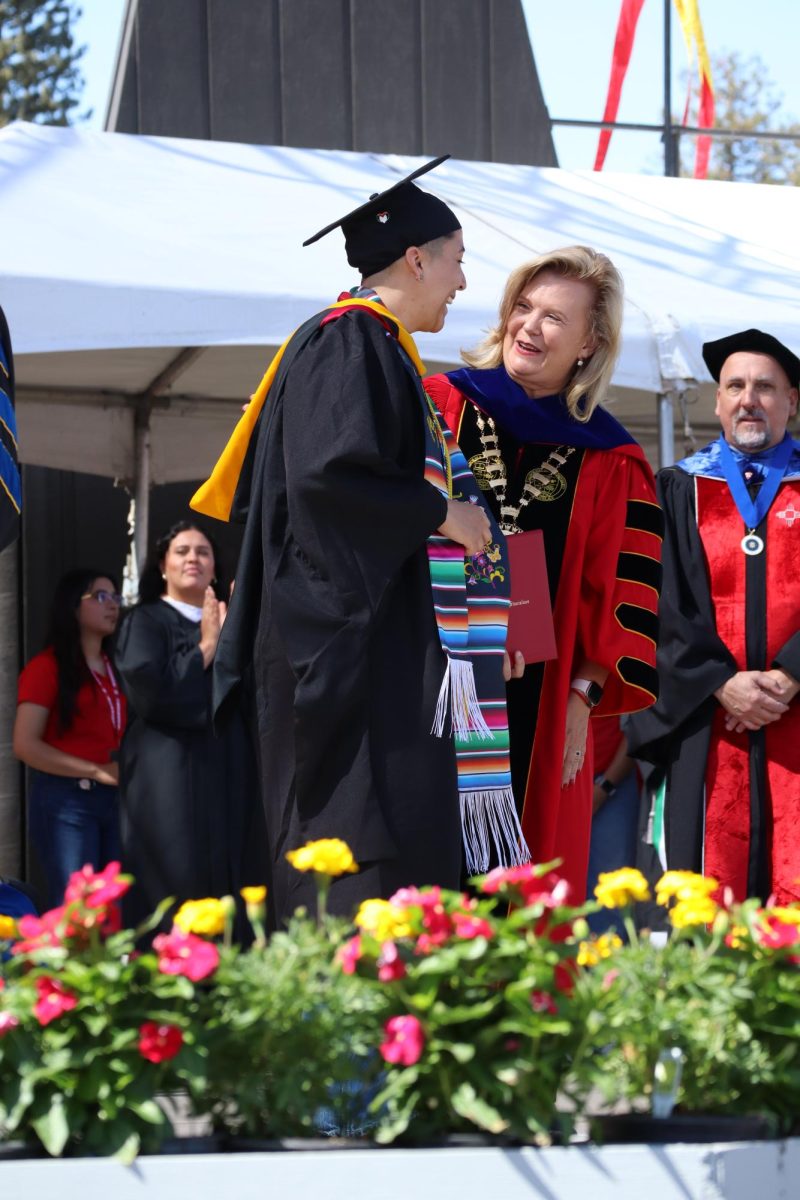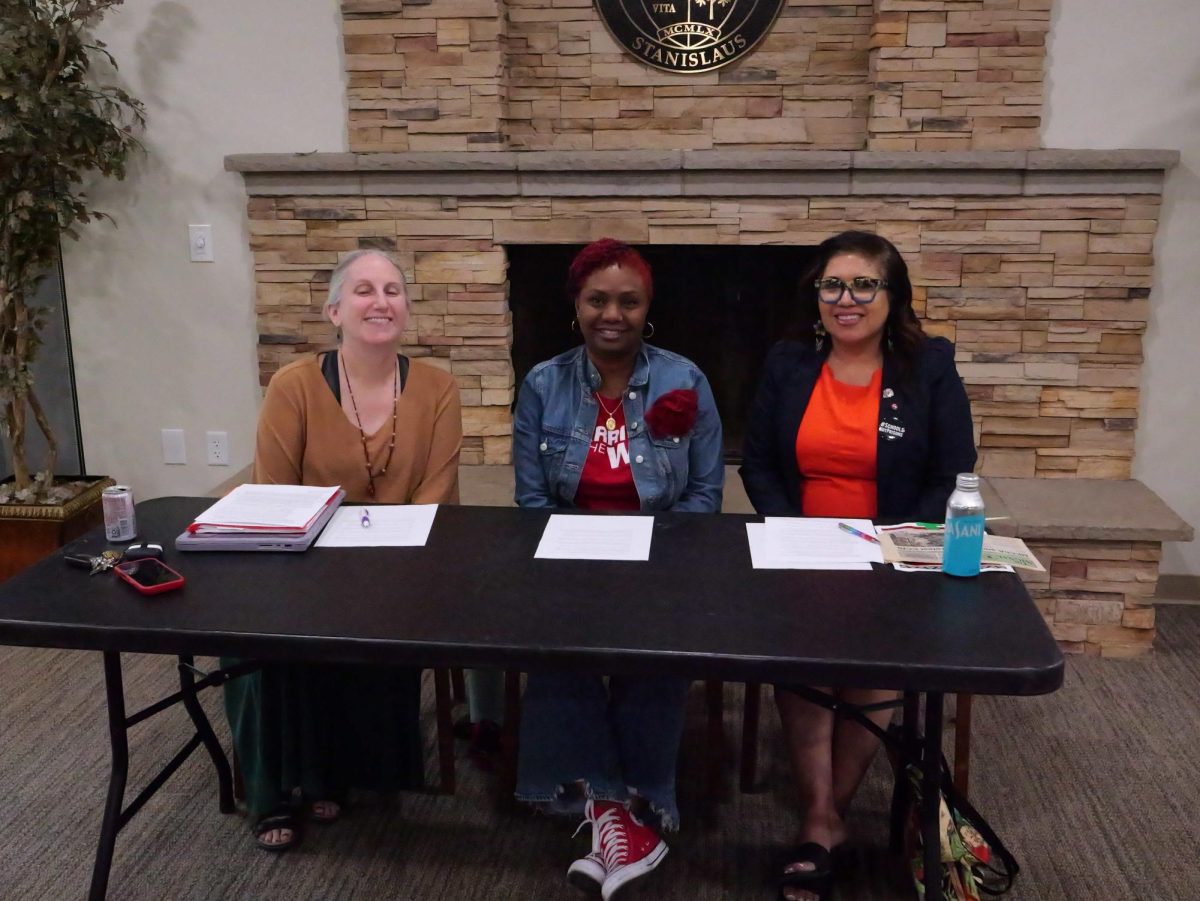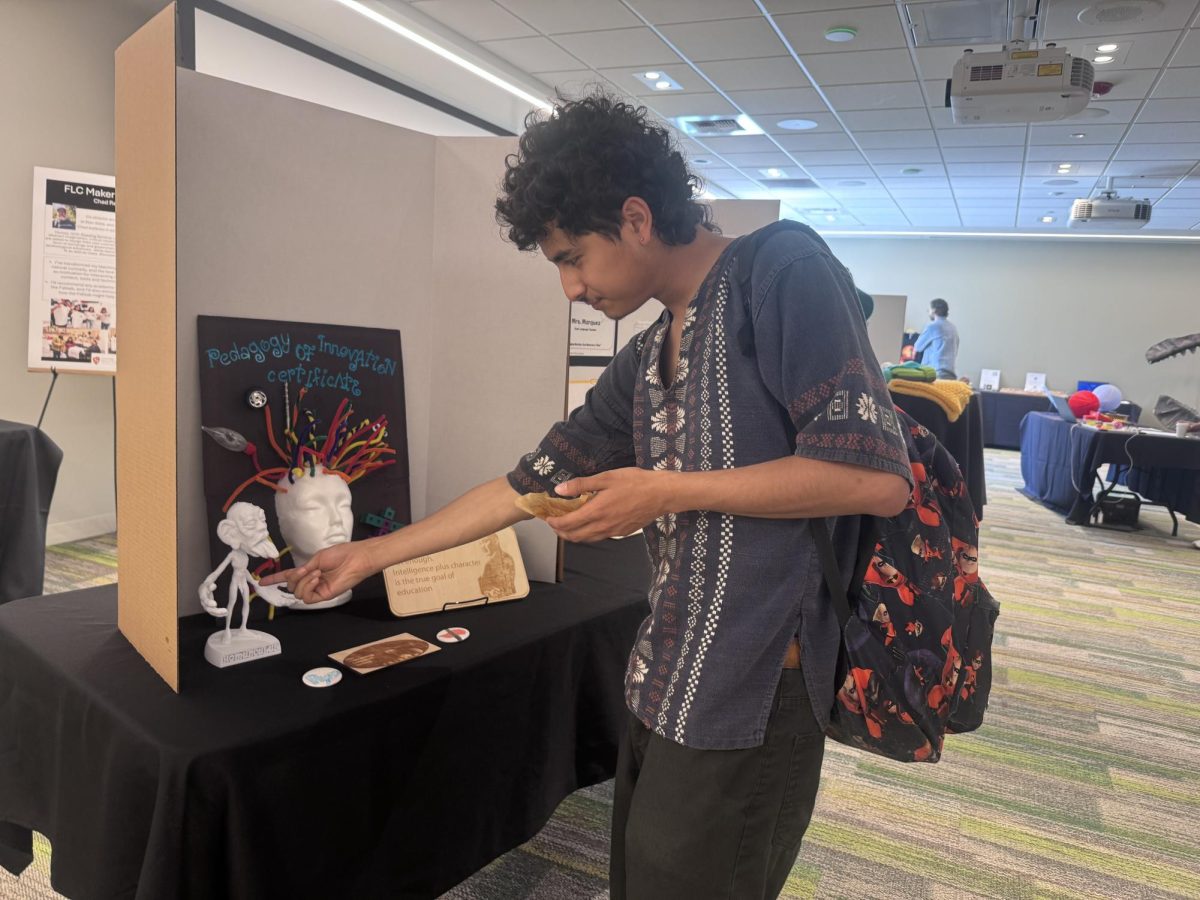Tuesday’s Academic Senate meeting saw discussions on feedback regarding multicultural requirement revisions as well as priority registration for student parents, among other items.
The meeting began with general announcements which included one from CSU Stanislaus Librarian, Tim Held, regarding the upcoming 2023 Research Scholarship & Creative Activity Celebration on Wednesday, April 12 from 3 – 5 p.m. at the Student Event Center and Zoom. Faculty are encouraged to support students to participate in the poster session and submit their research at the Student Poster Information Collection form by March 15. Any questions can be directed to the Office of Graduate Studies and Research at [email protected].
Senator Adela Gonzalez, Vice President of Finance for Associated Students Inc. (ASI) said during her report that their recent academic advising survey for undergrads has been a huge success, with more than 700 students having replied to it so far. Those who fill out the survey will be eligible to win one of ten $50 gift cards.
“So, it’s really exciting,” Gonzalez said. “And we’re constantly walking around campus trying to inform students about the opportunity.”
She also announced ASI has a new graduate student assistant.
“His name is Joe Flores, who is already beginning in his position, so we’re gonna meet with him to discuss his initiatives for grad students,” she said.
Finally, Gonzalez said that candidate applications for the 2023-2024 ASI board of directors’ term are now available online. Questions about running for Student Government? Contact: [email protected] Faculty who would like Academic Advising flyers for their classrooms Contact: [email protected]
During the California Faculty Association (CFA) report, Senator Dave Colnic shared a couple of local issue items. He said that some lecturers received good news recently regarding the eligibility for range elevation, which he said is contractually mandated.
“This is a big deal for a lot of people,” he said.
He also announced an upcoming social justice workshop for faculty, entitled Understanding Privilege, in-person on Friday, March 24 from 1- 3:30 p.m. A zoom will also be available.
Statewide, Colnic said as CFA and the California State University are preparing to enter contract negotiations, there will be reopening’s on five articles of the collective bargaining agreement, including confession and workload. He urged faculty engagement on the matter.
Multicultural Requirement
The University Educational Policies Committee (UEPC) has been working on changes to the multicultural requirement. Senator Marcy Chvasta prepared comments for the information item and shared an informational document with the senate. The UEPC received feedback and held open forums to discuss recommendations from the ad hoc committee on the matter.
They made changes to resolve pragmatic issues and recognize differing paradigmatic approaches. Changes include removing the requirement for faculty vetting, removing the recommended assignment-based Course Learning Outcome (CLO), and developing a timeline for implementation. They are also suggesting a different name for the multicultural subcommittee, according to Chvasta.
The proposed name is sociocultural inquiry, but Chvasta said there have been other suggestions. She added that there is potential for double counting between the requirement and ethnic studies, but it is up to the departments to decide which courses they want to double count.
“We ask that you discuss this document with your programs and provide us feedback in as timely fashion as possible,” Chvasta said. “We look forward to continuing our progression in designing a requirement that aligns with our mission and values while meeting the needs of our students.”
Priority Registration for Parents
Chvasta introduced the next reading item, which is a resolution that will bring the university in compliance with Assembly Bill 2881, which requires priority registration for student parents with children under 18 who receive more than half of their support from that student. The current resolution lacks specificity regarding the process of identifying student parents because it is still being finalized, according to Chvasta, but would likely be through self-identification in the student portal and will not involve faculty asking for information. The resolution would give parent students their pick of classes at a level similar to athletes.
Chvasta said the estimated number of students who will qualify for this priority registration is about 10% or 1000-1100 students.
Senator Dianne Vargas was in full support of the resolution.
“I fully support it, as again, it is based on Assembly Bill 2881 and it is within a time crunch,” she said, “So I definitely wanted to make sure it moves forward.”
However, there were some concerns brought up regarding who the resolution should be limited to.
Senator Dana Nakano wondered if this was just a floor and not a ceiling regarding which students should benefit from priority registration.
“I know when folks are taking care of elderly family members, family members with illnesses or disabilities, or what have you, that also takes up considerable amounts of time,” he said, “and take students away from the classroom, and they should also be considered in this.”
Nakano added that he hoped the senate would consider a broader category of character moving forward with the resolution.
The finalized process will be reviewed in two years and could be revised to articulate with specificity.
Categories:
Multicultural Requirement, Priority Registration for Student Parents Discussed at Academic Senate
Kristin Platts
Matt Southern
Mark Coggins
Katelyn Hawthorne
•
February 17, 2023
0
More to Discover



















